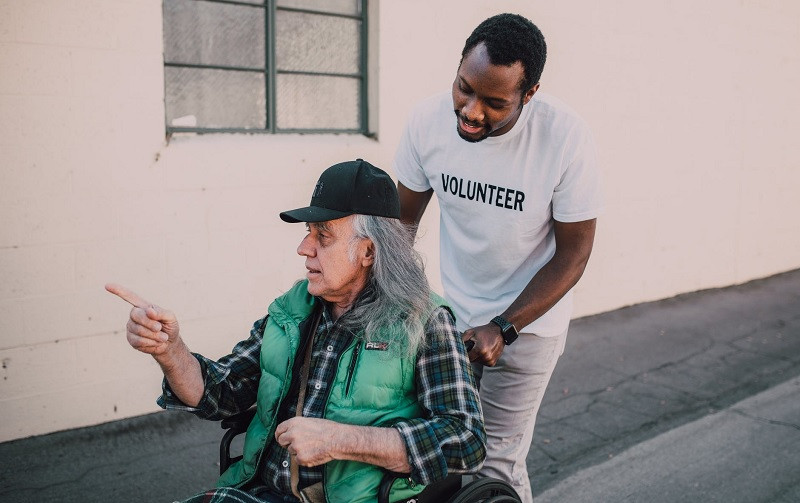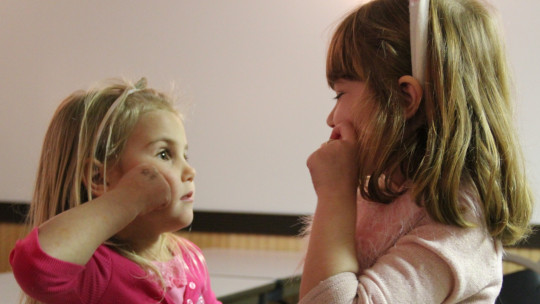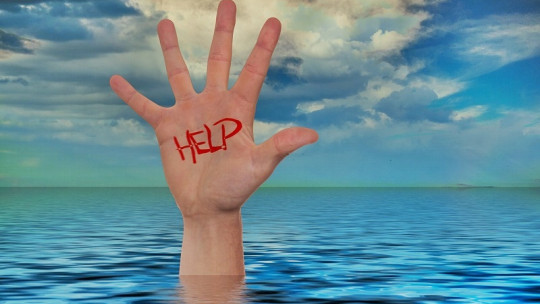The concept of empathy-driven helping behavior has long fascinated psychologists, philosophers, and social scientists alike. One of the most influential frameworks in understanding why humans help others is Batson’s Empathy-Altruism Hypothesis. Developed by psychologist C. Daniel Batson in the 1980s, this hypothesis proposes that empathy for another individual can lead to truly altruistic behavior, where the motivation to help stems not from personal gain but from a genuine concern for the welfare of others.
Understanding this hypothesis is particularly significant because it challenges traditional explanations of prosocial behavior, such as egoistic motivations, social exchange theory, or reciprocity norms. According to Batson, empathy creates a powerful internal drive that can override self-interest, pushing individuals to act selflessly even when helping involves personal costs. This theory has profound implications for fields ranging from clinical psychology to organizational behavior, social policy, and even global humanitarian efforts.
In this article, we will explore the theoretical foundations of Batson’s Empathy-Altruism Hypothesis, the key experiments that support it, the mechanisms through which empathy promotes altruistic behavior, and its implications for real-world helping behaviors. Additionally, we will examine criticisms, debates, and applications of the hypothesis in contemporary psychological research. By the end, readers will have a comprehensive understanding of how empathy can genuinely drive altruism and the conditions under which this process occurs.
The Foundations of the Empathy-Altruism Hypothesis
The Empathy-Altruism Hypothesis posits that when an individual feels empathic concern for someone in need, the resulting motivation to help is genuinely altruistic. Empathy, in this context, is defined as an emotional response congruent with another person’s emotional state, often accompanied by feelings of compassion and care.
Batson distinguished this type of helping behavior from actions motivated by egoistic concerns, such as:
- Avoiding personal distress or guilt
- Seeking social approval
- Anticipating reciprocity or reward
According to the hypothesis, when people experience true empathic concern, the primary goal becomes alleviating the other person’s suffering, even if no personal benefit is gained. This challenges earlier views in social psychology that framed all helping behavior as ultimately self-serving.
Key Experiments Supporting the Hypothesis
Batson and his colleagues conducted several influential experiments to test the Empathy-Altruism Hypothesis. One of the most famous studies involved participants observing a person (confederate) in apparent distress. Participants were asked to rate how much empathy they felt and were then given the option to help.
The Elaine Study
In the Elaine Study, participants read about a woman named Elaine who had been seriously injured in an accident. Researchers manipulated two key factors:
- Empathy Level: Participants were asked to imagine how Elaine felt (high empathy) or remain objective (low empathy).
- Cost of Helping: Participants were told they could either help Elaine by taking on her tasks or avoid helping by leaving the experiment.
Findings:
- Participants in the high-empathy condition were more likely to help Elaine, regardless of whether helping was easy or costly.
- Participants in the low-empathy condition only helped when helping was easy or offered some personal benefit.
This study provided strong evidence that empathy can motivate genuine altruism, independent of self-interest.
Additional Research
Subsequent experiments have extended these findings, showing that empathic concern predicts helping behavior in real-life situations, including volunteering, charitable donations, and emergency responses. Neuroimaging studies further support these conclusions, revealing activation of brain regions associated with emotional processing and empathy, such as the anterior insula and anterior cingulate cortex, during altruistic acts motivated by empathy.
Mechanisms of Empathy-Induced Altruism
Batson’s hypothesis identifies several psychological mechanisms through which empathy promotes helping behavior:
- Emotional Contagion: Feeling another person’s emotional state creates an internal drive to alleviate their suffering.
- Perspective-Taking: Imagining oneself in another’s situation increases understanding, compassion, and motivation to act.
- Empathic Concern: Experiencing warm, compassionate feelings toward someone in need triggers a desire to help, often overriding self-interest.
Key idea: These mechanisms collectively suggest that altruistic behavior can emerge from genuine emotional resonance, rather than calculated self-benefit.
Conditions That Influence Empathy-Altruism
While empathy can motivate altruism, several factors can enhance or inhibit this process:
- Perceived similarity: People are more likely to help those they perceive as similar to themselves.
- Identifiable victim effect: Individuals respond more strongly to concrete, identifiable individuals than to abstract groups.
- Emotional proximity: Greater emotional connection increases the likelihood of helping.
- Situational constraints: Physical barriers, social norms, or fear of negative consequences can inhibit empathic helping, even if empathic concern exists.
Understanding these factors helps explain why empathy does not always lead to altruistic action and highlights the complexity of human prosocial behavior.
Applications of the Empathy-Altruism Hypothesis
The Empathy-Altruism Hypothesis has practical implications across multiple domains:
Clinical Psychology
In therapeutic contexts, empathy is a foundational tool for building trust and fostering prosocial behavior. Therapists often encourage clients to develop empathic concern for themselves and others, promoting emotional regulation, moral development, and interpersonal effectiveness.
Education
Programs that cultivate empathy in children and adolescents have been shown to increase cooperative behavior, reduce bullying, and enhance social competence. Understanding the link between empathy and altruism can inform school-based social-emotional learning curricula.
Organizational Behavior
In workplaces, fostering empathic leadership and team cultures can lead to collaborative problem-solving, cooperative teamwork, and ethical decision-making. Employees who feel empathy toward colleagues are more likely to support one another, share resources, and contribute to a positive organizational climate.
Humanitarian and Charitable Efforts
Charities and NGOs leverage the identifiable victim effect by highlighting specific stories and images to evoke empathy. This approach increases donations, volunteer participation, and advocacy, demonstrating the power of empathy to drive real-world altruism.
Criticisms and Debates
Despite strong empirical support, the Empathy-Altruism Hypothesis is not without controversy. Critics argue that:
- Helping behavior may still be partially egoistic, as people gain emotional satisfaction from alleviating others’ suffering.
- Some studies suggest that cognitive empathy without emotional concern can also motivate helping under certain conditions.
- Cross-cultural differences may influence whether empathy consistently leads to altruistic behavior, suggesting that context matters.
Nonetheless, the hypothesis remains a cornerstone in understanding the psychological basis of prosocial behavior, sparking decades of research on empathy, morality, and altruism.
Implications for Personal Growth
Understanding Batson’s Empathy-Altruism Hypothesis can enhance self-awareness and interpersonal relationships. By recognizing the role of empathy in motivating prosocial behavior, individuals can:
- Develop active listening skills and perspective-taking abilities
- Practice compassionate responses in daily interactions
- Make more conscious choices about helping others, even when personal costs are involved
Key idea: Empathy is not just a moral ideal—it is a psychologically grounded mechanism that can guide action and improve social cohesion.
Opposition to the empathy-altruism hypothesis
Thus, Daniel Batson believes that empathy generates in the individual a motivation to act altruistically. But not everyone agrees with this statement, since there are theories and authors who believe that altruistic behavior as such does not exist, that it would in any case be an ideal, ensuring that people always act for their own benefit and if The sum of the cost and reward comes out positive, that is, if helping others is more positive than negative for us.
Those who oppose this hypothesis claim that whenever we act in favor of another person we do so with a double intention, since we only act if it does not cost us and benefits us or makes us feel better. Thus, it would be difficult to identify behavior that is completely altruistic, since to a greater or lesser extent it will always end up bringing something good to us, even if it is just feeling good for having helped.
Another notable point: the hypothesis is stated with the purpose of helping only one person, but if we apply it to reality, the number of subjects who may require help increases. Therefore, it would be interesting to study how the appearance of other victims who require us affects our motivational process of carrying out prosocial behavior. Similarly, another variable to consider is presented: the limitation of our helping behavior. Despite there being different victims, our behavior cannot encompass them all, having to decide how to act.
Despite the opposition it has received, Batson maintains the empathy-altruism hypothesis and has verified through research and studies, more than 35 experiments, which show that empathy and altruism are related and that It is not true that people always act expecting something in return when we support others.
In this sense, it is worth noting that Batson was not the only one who proposed the influence of empathy for the performance of altruistic behavior; There are other well-known authors such as the naturist Charles Darwin or the philosopher David Hume who affirm that empathy is basic for the subject to act in a prosocial way.
The benefit of the other is a benefit for us
Likewise, it is difficult to assess whether a behavior is based on genuine altruism, since will be difficult to know with certainty what the final intention was or what I was trying to feel by having such behavior. But what we have observed, and what most likely happens, is that there is feedback between making others feel good and making ourselves feel good.
If we help another individual with the intention of making him feel better, that is, altruistically, by seeing that his condition improves, that will also make us feel good if we are empathetic. Feeling better is not our main goal, but it is a fact that appears when we see the other person’s improvement.
Taking into account what has been stated so far, altruistic behavior can be linked to personal benefit even if this is not its ultimate purpose. By acting with the intention of helping others, we will also indirectly gain, and this will improve our self-concept, our self-esteem, we will feel better about ourselves, thus increasing the possibility that we will act altruistically again. Acting altruistically benefits everyone.
On the other hand, if the intention of my behavior towards the other is to benefit myself (in other words, we act selfishly with our own benefit as our main objective), that ends up generating bad relationships and anger, since the other person realizes our intentions, or when we do not receive what we expect, a negative reaction occurs that will mean breaking the relationship with that person.
Thus, if we want to maintain good relationships and social ties, the best mode of action is altruistic, since it is what allows connections to continue to occur and remain, without breaking due to self-interest or a demand to return a favor. Acting without expecting anything in return makes us free, gives us peace of mind and makes us happier if we receive a good action in return, because it is not what we expected.
FAQs About Batson’s Empathy-Altruism Hypothesis
What is Batson’s Empathy-Altruism Hypothesis?
It is the idea that empathy for another person can produce genuinely altruistic helping behavior, motivated by concern for the other rather than self-interest.
How does it differ from egoistic explanations of helping?
Unlike egoistic explanations, which suggest people help to reduce personal distress or gain rewards, the Empathy-Altruism Hypothesis argues that true altruism arises from empathic concern alone.
What evidence supports this hypothesis?
Studies like the Elaine Study show that participants with high empathy helped even when personal costs were high, indicating motivation beyond self-interest. Neuroimaging studies further support the link between emotional resonance and helping behavior.
Can empathy fail to produce altruism?
Yes, factors such as perceived risk, social pressure, or emotional overload can inhibit helping, even when empathy is present. Context and situational constraints influence whether empathic concern translates into action.
How is this hypothesis applied in real life?
It informs therapeutic practices, educational programs, workplace training, and charitable campaigns, emphasizing the cultivation of empathy to encourage prosocial and altruistic behaviors.
Does this mean all empathy leads to altruism?
Not necessarily. While empathy increases the likelihood of helping, individual differences, situational factors, and cultural norms moderate the effect.
Can empathy be trained or enhanced?
Yes, interventions such as mindfulness, perspective-taking exercises, and social-emotional learning programs have been shown to enhance empathy, which can in turn increase prosocial and altruistic behaviors.












